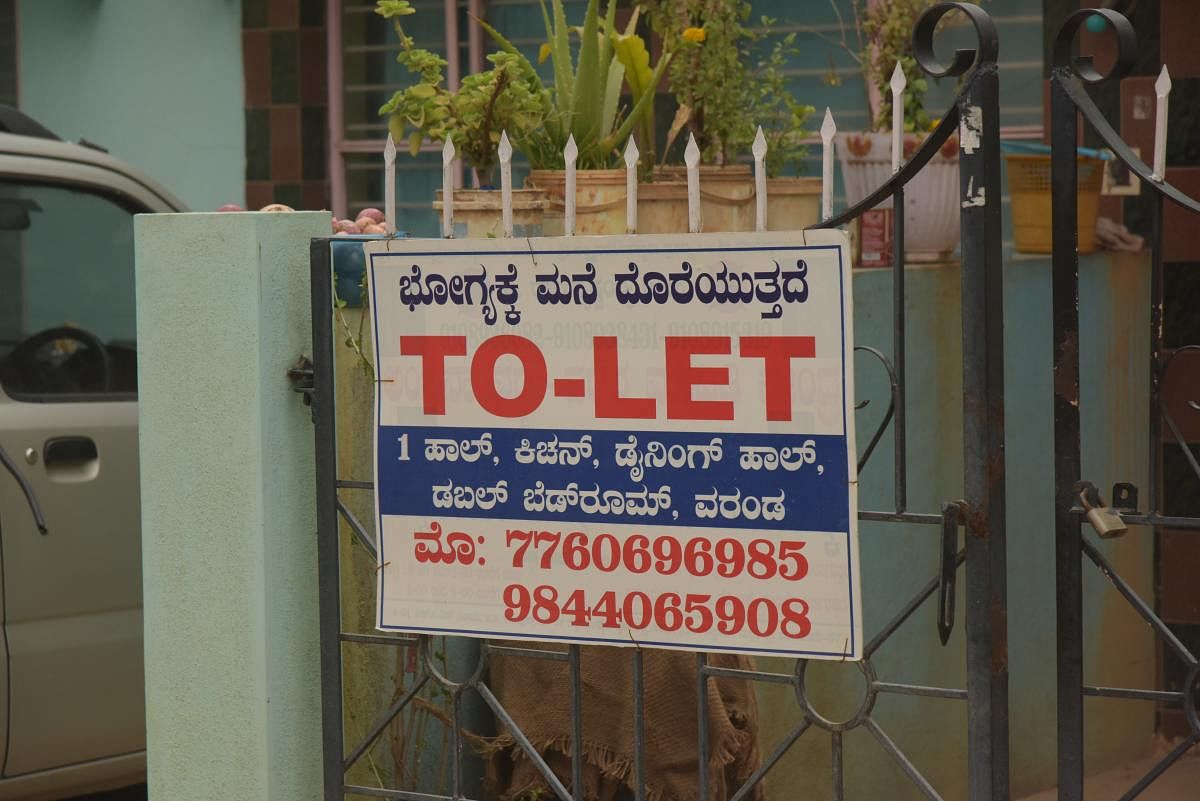
The Model Tenancy Act, soon to be adopted by Karnataka (see box), will change house rental conventions in Bengaluru.
Most Bengaluru landlords collect between five and 10 months’ rent as advance, but that will change to just two months if the new tenancy law is adopted.
Despite the Karnataka Rent Control Act of 1999 being in place, both tenants and house owners in the city violate rules often, says Indra Dhanush M A, a lawyer who practices at the High Court.
“There are many who are not ready to give PAN card details or make a written agreement. The new law will make it compulsory for both parties to enter into a written agreement,” he says.
If a landlord doesn’t return the advance, interest will be levied on it. This will deter them from holding back the money, and disputes will be settled faster, he says.
The new law also helps evict tenants who stay on beyond their tenure. “Despite warnings from the police, some tenants refuse to leave. There are landmark judgments that say that a tenant who pays rent on time and maintains property well can’t be evicted if no valid reason exists for eviction. The new law deals with such disputes easily,” he says.
Advocate Vinay Mishra, founder of Bengaluru Tenants Association, says many owners retain a huge portion of the deposit when their tenants vacate. “They deduct a month’s rent as damages. Some refuse to return the money even after the deductions,” he says.
If the new Act is adopted, there will be several benefits, according to Mishra. “The tenant won’t lose a hefty amount, as they do now,” he says. If a tenant refuses to vacate, the rent doubles in the first month after the tenure, and subsequently goes up four times.
‘One-sided approach’
Sriram Chitturi, founding president of Rental Housing Association of India and founder of rental housing company Guesture, says the objective of the Model Tenancy Act is to ensure housing for all.
“Till now, housing for all only meant ownership, which is why rental housing was fractured, unstructured and loosely done, without documentation. The move to create an organised rental housing industry is appreciated,” he says. Earlier, rental disputes would go to a police station or the courts, and resolution took a lot of time. “With new rent courts being appointed, the resolution process will be time-bound and quantifiable,” he says.
What does the Act say?
A written agreement is a must. It has to be submitted to the district rent authority.
It promotes uniform security deposits: two months’ rent for residential spaces and up to six months’ rent for commercial properties.
Divides responsibilities of landlord and tenant for property maintenance.
If a tenant doesn’t permit the landlord to build on rental premises, the landlord can approach a rent
court.
Landlord cannot withhold essential amenities, such as water and electricity, from the tenant.
Rent cannot be increased during the tenancy period unless mentioned in the agreement.
Karnataka first
The Model Tenancy Act was approved by the Modi government on June 2. It is now up to the states to adopt it. Revenue minister R Ashoka says Karnataka will be the first state to do it. “We will have a revenue department meeting in a week. An ordinance can be brought before it is presented in the Assembly. With thousands of houses lying vacant, this will be beneficial for everyone. We are working towards bringing this law to Karnataka soon,” he told Metrolife.